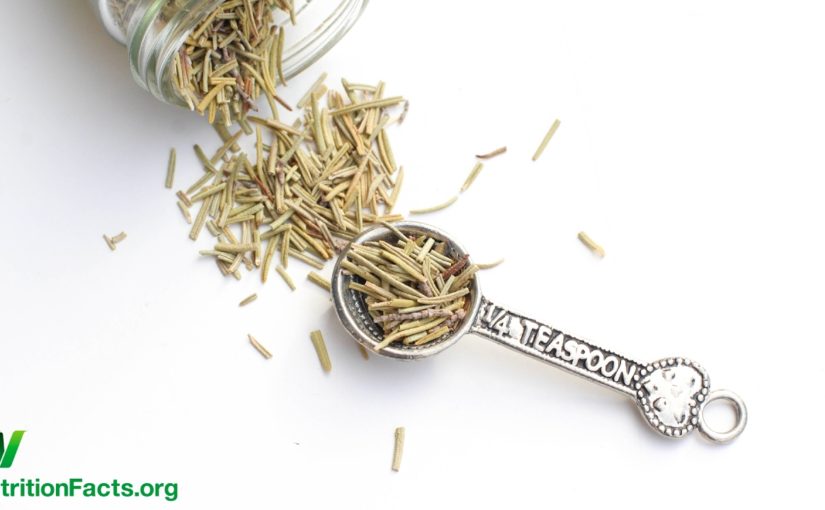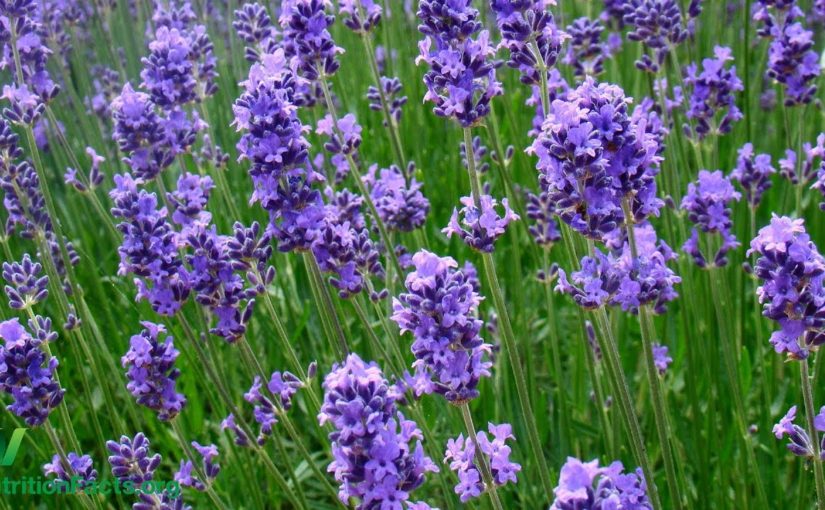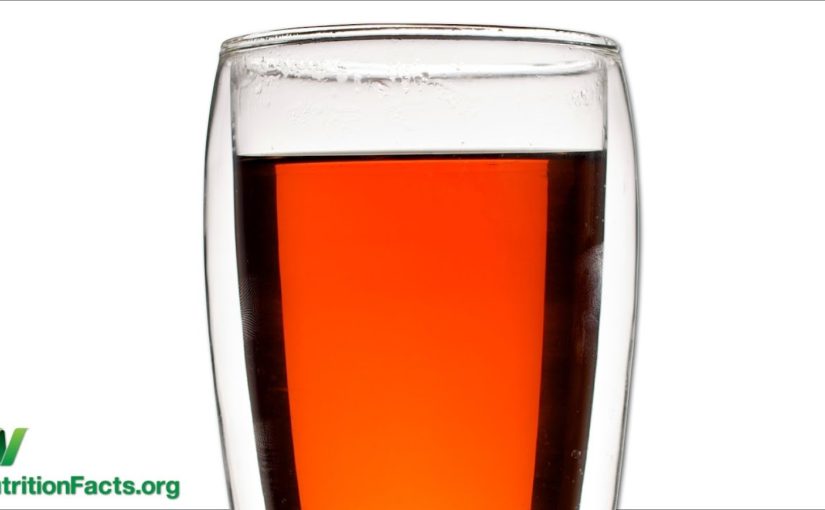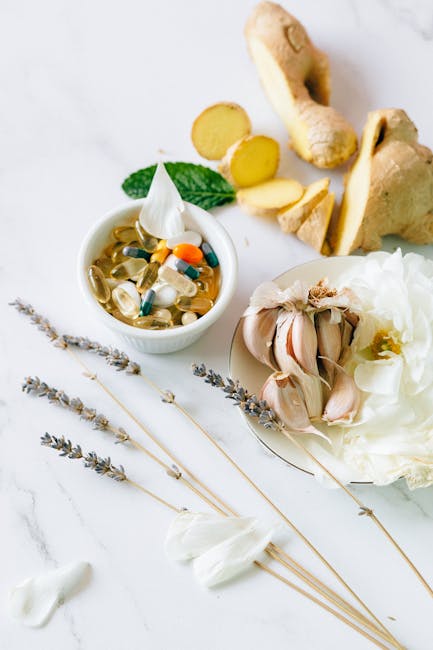Benefits of Rosemary for Brain Function in Hamlet, Act, 4, Scene, 5, Ophelia notes that rosemary is for remembrance, an idea that goes back at least a few thousand years to the ancient Greeks who claimed that rosemary comforts. The brain sharpens understanding, restores lost memory and awakens the mind. After all, plants can be considered little chemical factories that manufacture all sorts of compounds that could have neuroprotective benefits. So let’s cut down on processed foods and eat lots of phytonutrient-rich whole plant foods, including perhaps a variety of herbs. Even the smell of certain herbs may affect how our brain works. Unfortunately, I’ve found much of the aromatherapy literature scientifically unsatisfying, like there’d, be studies like this, offering subjective impressions and so fine sure sniffing. An herbal sachet is indeed easy, inexpensive, and safe, but is it effective? They didn’t compare tests, scores, or anything Even when there was a control group where researchers had people do a battery of tests in a room that smelled like rosemary, lavender, or nothing, and even when they did compare test results. The lavender appeared to slow them down, and impair their performance, whereas the rosemary group seemed to do better, But maybe that’s just because of the mood effects. Maybe the rosemary group did better just because the aroma kind of pepped them up And not necessarily in a good way, maybe kind of overstimulating. In some circumstances, there have been studies that measured people’s brain waves and were able to correlate the EEG findings with the changes in mood and performance, along with objective changes in stress hormone levels. But is this all just because pleasant smells improve people? S moods Like if you created some synthetic rosemary fragrance with a bunch of chemicals that had nothing to do with the rosemary plant. Would it still have the same effect We didn’t know until now that aromatic herbs do have volatile compounds that theoretically could enter the bloodstream by way of the lining of the nose or lungs and then potentially cross into the brain and have direct effects? But this was the first study to put it to the test. They had. People do math in a cubicle infused with rosemary aroma, and so yes, they got that same boost in performance, but for the first time showed how much better they did correlate with the amount of a rosemary compound that made it into their bloodstream. Just from being in the room, and so not only did this show that it gets absorbed, but that such natural aromatic plant compounds may be playing a direct effect on changes in brain function.

If that’s just what smelling it can do? What about eating rosemary? We have studies on alertness and cognition and reduced stress hormone levels, by inhaling rosemary. However, there were no clinical studies on cognitive performance following ingestion of rosemary. Until now, Older adults, average age 75 were given two cups of tomato juice, with either nothing or a half. A teaspoon of powdered rosemary, which is what one might use in a typical recipe, or a full teaspoon, two teaspoons, or over a tablespoon of rosemary powder, and they even gave them some placebo pills to go with it to even further eliminate any placebo effects. Speed of memory is a potentially useful predictor of cognitive function during aging, and what they found is that the lowest dose had a beneficial effect, accelerating their processing speed, but the highest dose impaired their processing speed, maybe because the half-teaspoon dose improved alertness, while the 4 Teaspoon dose decreased alertness, So rosemary powder at the dose nearest to normal, culinary consumption demonstrated positive effects on speed of memory. The implicit take-home message being more isn’t necessarily better. Take high doses of herbal supplements extracts tinctures, just cooking with spices is sufficient. A conclusion, no doubt pleasing to the spice company that sponsored the study. No side effects were reported, but that doesn’t mean you can eat the whole bush.This poor guy swallowed a rosemary twig which punctured through the stomach into his liver, causing an abscess from which 2 cups of pus and a 2-inch twig were removed, so explore herbs and spices in your cooking Branch out. Just leave the branches out.
As found on YouTubeNatural Synergy $47.⁰⁰ New Non-Invasive Alternative. To Electro-Acupuncture, Producing Astounding Results… Self-Application Is Easy, Rapid Response. You’re about to discover how both chronic and acute pain, skin conditions, migraines, and hundreds of ailments all stem from the same root cause ꆛ Yin Yang
Ailments🗯 such as➯➱ ➫ ➪➬ Chronic pain⇝Low immunity⇝Chronic acid reflux⇝High blood pressure⇝Addictions⇝Fibromyalgia⇝Allergies⇝Osteoarthritis⇝Headaches⇝Low back⇝pain Asthma⇝Headaches⇝Depression and anxiety⇝Urinary problems… to name just a few…

 If that’s just what smelling it can do? What about eating rosemary? We have studies on alertness and cognition and reduced stress hormone levels, by inhaling rosemary. However, there were no clinical studies on cognitive performance following ingestion of rosemary. Until now, Older adults, average age 75 were given two cups of tomato juice, with either nothing or a half. A teaspoon of powdered rosemary, which is what one might use in a typical recipe, or a full teaspoon, two teaspoons, or over a tablespoon of rosemary powder, and they even gave them some placebo pills to go with it to even further eliminate any placebo effects. Speed of memory is a potentially useful predictor of cognitive function during aging, and what they found is that the lowest dose had a beneficial effect, accelerating their processing speed, but the highest dose impaired their processing speed, maybe because the half-teaspoon dose improved alertness, while the 4 Teaspoon dose decreased alertness, So rosemary powder at the dose nearest to normal, culinary consumption demonstrated positive effects on speed of memory. The implicit take-home message being more isn’t necessarily better. Take high doses of herbal supplements extracts tinctures, just cooking with spices is sufficient. A conclusion, no doubt pleasing to the spice company that sponsored the study. No side effects were reported, but that doesn’t mean you can eat the whole bush.This poor guy swallowed a rosemary twig which punctured through the stomach into his liver, causing an abscess from which 2 cups of pus and a 2-inch twig were removed, so explore herbs and spices in your cooking Branch out. Just leave the branches out.As found on YouTubeNatural Synergy $47.⁰⁰ New Non-Invasive Alternative. To Electro-Acupuncture, Producing Astounding Results… Self-Application Is Easy, Rapid Response. You’re about to discover how both chronic and acute pain, skin conditions, migraines, and hundreds of ailments all stem from the same root cause ꆛ Yin Yang Ailments🗯 such as➯➱ ➫ ➪➬ Chronic pain⇝Low immunity⇝Chronic acid reflux⇝High blood pressure⇝Addictions⇝Fibromyalgia⇝Allergies⇝Osteoarthritis⇝Headaches⇝Low back⇝pain Asthma⇝Headaches⇝Depression and anxiety⇝Urinary problems… to name just a few…
If that’s just what smelling it can do? What about eating rosemary? We have studies on alertness and cognition and reduced stress hormone levels, by inhaling rosemary. However, there were no clinical studies on cognitive performance following ingestion of rosemary. Until now, Older adults, average age 75 were given two cups of tomato juice, with either nothing or a half. A teaspoon of powdered rosemary, which is what one might use in a typical recipe, or a full teaspoon, two teaspoons, or over a tablespoon of rosemary powder, and they even gave them some placebo pills to go with it to even further eliminate any placebo effects. Speed of memory is a potentially useful predictor of cognitive function during aging, and what they found is that the lowest dose had a beneficial effect, accelerating their processing speed, but the highest dose impaired their processing speed, maybe because the half-teaspoon dose improved alertness, while the 4 Teaspoon dose decreased alertness, So rosemary powder at the dose nearest to normal, culinary consumption demonstrated positive effects on speed of memory. The implicit take-home message being more isn’t necessarily better. Take high doses of herbal supplements extracts tinctures, just cooking with spices is sufficient. A conclusion, no doubt pleasing to the spice company that sponsored the study. No side effects were reported, but that doesn’t mean you can eat the whole bush.This poor guy swallowed a rosemary twig which punctured through the stomach into his liver, causing an abscess from which 2 cups of pus and a 2-inch twig were removed, so explore herbs and spices in your cooking Branch out. Just leave the branches out.As found on YouTubeNatural Synergy $47.⁰⁰ New Non-Invasive Alternative. To Electro-Acupuncture, Producing Astounding Results… Self-Application Is Easy, Rapid Response. You’re about to discover how both chronic and acute pain, skin conditions, migraines, and hundreds of ailments all stem from the same root cause ꆛ Yin Yang Ailments🗯 such as➯➱ ➫ ➪➬ Chronic pain⇝Low immunity⇝Chronic acid reflux⇝High blood pressure⇝Addictions⇝Fibromyalgia⇝Allergies⇝Osteoarthritis⇝Headaches⇝Low back⇝pain Asthma⇝Headaches⇝Depression and anxiety⇝Urinary problems… to name just a few…


 Since lavender oil has no potential
for drug abuse and causes no hangover effects, it appears to be an effective
and well-tolerated alternative to benzodiazepine drugs for the amelioration
of generalized anxiety. One cautionary note, however. There was a case series published
in the New England Journal of Medicine. Prepuberty gynecomastia
linked to lavender. Reports of young boys exposed
to lavender-containing lotions, soaps, hair gel, and shampoo,
starting to develop breasts, which disappeared after these
products were discontinued, suggesting that lavender oil
may possess hormone-disrupting activity. Indeed, when dripped on estrogen receptor
positive human breast cancer cells, lavender does show estrogenic effects
and a decline in male hormone activity, though it’s unknown if similar reactions
occur inside the body when lavender flowers
or lavender oil is ingested.
Since lavender oil has no potential
for drug abuse and causes no hangover effects, it appears to be an effective
and well-tolerated alternative to benzodiazepine drugs for the amelioration
of generalized anxiety. One cautionary note, however. There was a case series published
in the New England Journal of Medicine. Prepuberty gynecomastia
linked to lavender. Reports of young boys exposed
to lavender-containing lotions, soaps, hair gel, and shampoo,
starting to develop breasts, which disappeared after these
products were discontinued, suggesting that lavender oil
may possess hormone-disrupting activity. Indeed, when dripped on estrogen receptor
positive human breast cancer cells, lavender does show estrogenic effects
and a decline in male hormone activity, though it’s unknown if similar reactions
occur inside the body when lavender flowers
or lavender oil is ingested.

 They compared the mineral content
of nettle tea to chamomile tea, mint tea, St. John’s wort, and sage. Nettle tea didn’t seem to have
much more than any of the others— but, maybe they’re all high? Well, one cup of nettle tea
does have the iron of a dried apricot (that’s more than I expected), the zinc found in one pumpkin seed,
one-twentieth of a mushroom’s worth of copper— but four peanuts’ worth of magnesium,
and an entire fig’s worth of calcium. I agree with the researchers that,
you know, a cup of herbal tea may not be an important source
of minerals, but it’s not negligible. You know, greens are so packed
with nutrition that you can benefit from just drinking some hot water
they’ve been soaking in for a few minutes.
They compared the mineral content
of nettle tea to chamomile tea, mint tea, St. John’s wort, and sage. Nettle tea didn’t seem to have
much more than any of the others— but, maybe they’re all high? Well, one cup of nettle tea
does have the iron of a dried apricot (that’s more than I expected), the zinc found in one pumpkin seed,
one-twentieth of a mushroom’s worth of copper— but four peanuts’ worth of magnesium,
and an entire fig’s worth of calcium. I agree with the researchers that,
you know, a cup of herbal tea may not be an important source
of minerals, but it’s not negligible. You know, greens are so packed
with nutrition that you can benefit from just drinking some hot water
they’ve been soaking in for a few minutes.